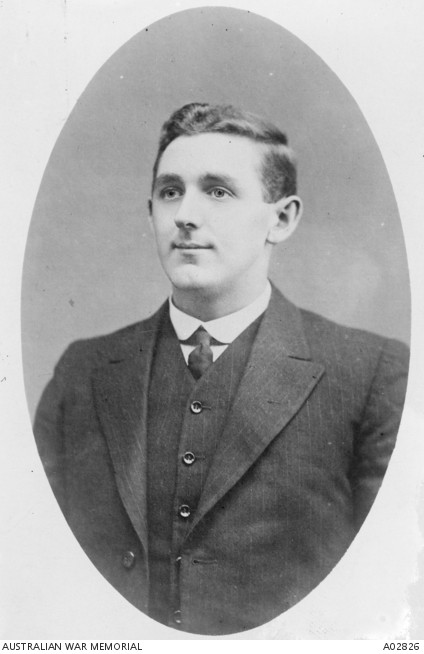
'Uncle Jack' , Australian War Memorial, A02826
Judith Hart, Enrolment Officer at St Peters Lutheran College, Indooroopilly, delivered an address at the school Anzac Day service on 24 April this year, and she has kindly agreed to allow us to publish it on this blog. Judith told the story of her great-great-uncle Jack, and remembered him as a much-loved family member. As a nation, we too remember him. Thanks Judy, for sharing your family story.
Guest blogger: Judith Hart, St Peters Lutheran College, Brisbane
Good morning, Most of you will know me as the lady who shared her knowledge of the school with you and your family when you enrolled. Today I am going to share with you the story of my Great-Great-Uncle, Jack. I’d also like to honour my great-aunt Jean Kennedy, who served as an army decoder and signaller on these very grounds of St Peters Lutheran College during World War Two. She is now in her nineties.
My great-grandmother’s brother John, served with the Australian Third Field Ambulance at Gallipoli.
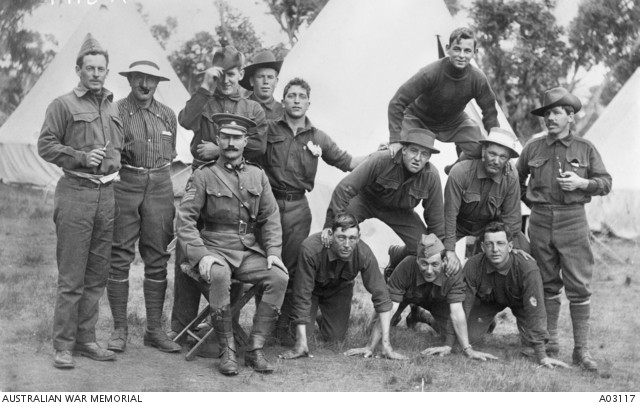
Informal group portrait of men of the 3rd Field Ambulance before embarkation, Australian War Memorial, A03117
Known in my mother’s family as Uncle Jack, he was a bit of a larrikin, the class clown, always in trouble with the merchant navy, mainly for being absent without leave. As a boy, he didn’t want to work in the underground mines in the north-east of England. So he came to Australia and worked on ships, like many members of my family.
His family always waited eagerly for news of him. A letter to his mother reads “I will be home for my duck at Christmas. I say, do you remember when I pinched that duck?” He was by all accounts a very ordinary man. He received no Victoria Cross, just his regular service medals to which he was entitled. If he’d been given one, indications are that he would have said, “I was just doing my job”. An ordinary man.
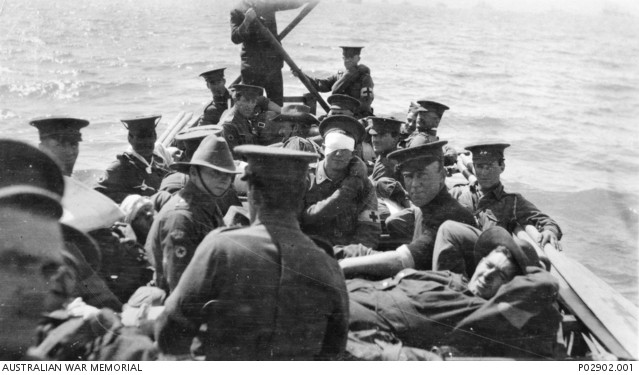
Members of the 3rd Field Ambulance practise transporting 'casualties' aboard a landing boat at Lemnos, Australian War Memorial, P02902.001
At an ANZAC Day service here at school a couple of years ago, I watched a small group of Junior School students, enthralled by the bugle-player’s rendition of The Last Post and I caught their delightful, innocent faces. Some gazed in wonder, some were deep in thought and one little boy covered his ears and pulled a face at the very loud noise. At that moment, I thought again of Uncle Jack and knew that if he were watching that little boy, he would have understood, smiled and probably have covered his ears too. For he was just an ordinary man.
Uncle Jack never had the chance to marry and have children. I wonder if he had, then what would they look like. Would they look like both my Uncle Jack and my grandfather with the hugest ears you’ve ever seen? I look at those old family photographs of Jack and two of his sisters. One of them my great-grandmother. I look at him and see my grandfather’s likeness. I look at his sister Peggy, and see my mother (also known as Peggy) staring back from the page. Just ordinary people in a family photograph album.
But Uncle Jack never had children, because was killed by machine-gun fire at Gallipoli on 19 May 1915. He will have no direct descendants representing him at tomorrow’s Dawn Service in Turkey.
If he had survived, he probably would have been court-martialled for disobeying orders. He shouldn’t have been there. He was told not to go. But something happened to Uncle Jack at Gallipoli. This ordinary man, always in trouble, became a hero.
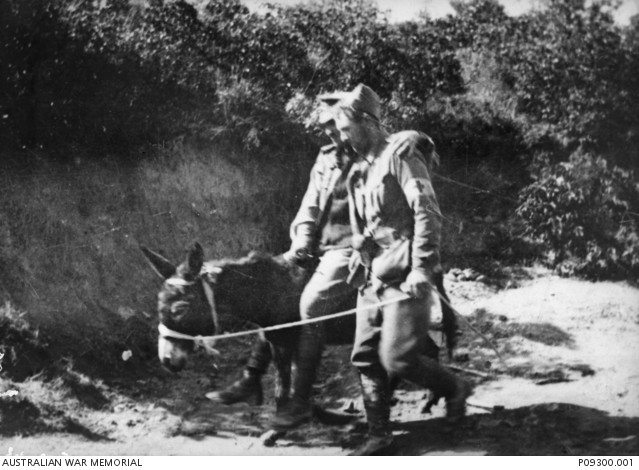
202 Private John Simpson Kirkpatrick (who enlisted as John Simpson), of the 3rd Field Ambulance, Australian War Memorial, P09300.001
Against orders, he rescued injured men for 23 days in the face of enemy fire, where others would not go. With his donkey, Murphy, it is estimated that he saved around 300 lives. My great-great Uncle Jack, as you may have guessed, was John Kirkpatrick Simpson, the man with the donkey at Gallipoli.
Remember that he and many thousands of other, ordinary men served and died, doing extraordinary deeds, that each of us may all have the chance to live in this country as free people, ordinary people. I’m not saying this to boast of his exploits or my relationship, but to let you know, that even ordinary people like you and I, can be called upon at any time, not just during the horrors of war, to take that leap of faith and do extraordinary things for each other.
And if, one day, you make that pilgrimage to the shores of Gallipoli and stand at the that famous grave of John Kirkpatrick Simpson, please pause for a moment and say hello to my Uncle Jack, but also lift your eyes and look about you, at all the graves of those not-so-famous extraordinary heroes whose names have faded into history, for they deserve your honour too.
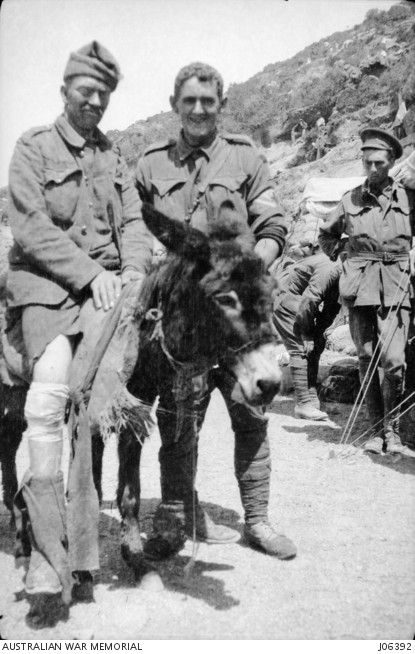
Comments
Your email address will not be published.
We welcome relevant, respectful comments.